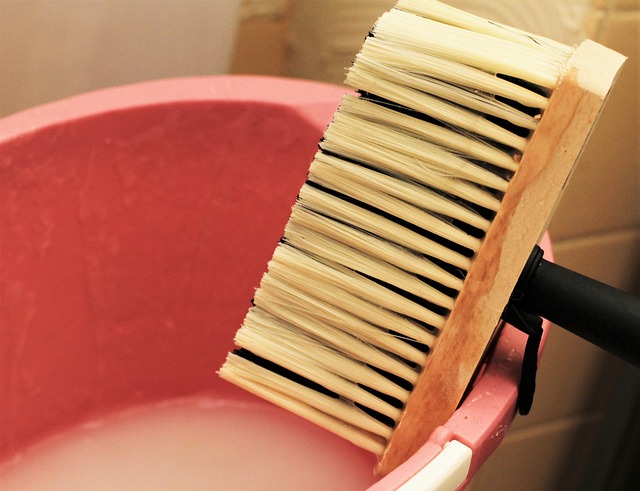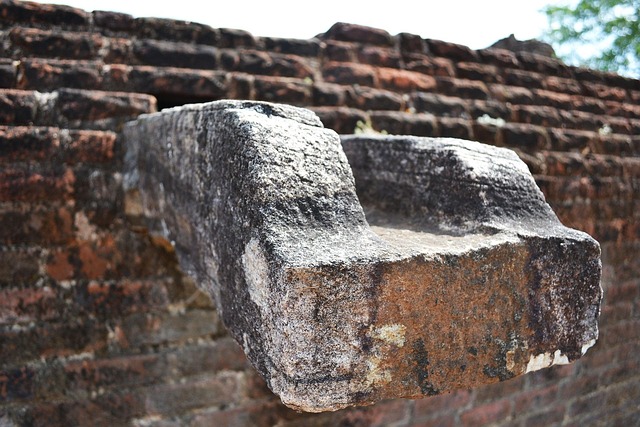Organic clogs in drains, caused by grease, food scraps, and hair, are common. Enzymatic cleaners, which break down organic matter naturally, offer an eco-friendly drain cleaning alternative to harsh chemicals. Choose products with powerful enzymes for severe clogs, follow manufacturer instructions, and maintain regular maintenance for optimal results.
Unclogging drains naturally? Consider enzymatic cleaners, a powerful, eco-friendly solution for organic clogs. These biological agents break down grease, hair, and other natural substances that cause common drain issues. In this article, we’ll explore the science behind organic clogs, delve into the numerous advantages of enzymatic cleaners, guide you in selecting the best product, and provide practical application tips to keep your drains flowing smoothly. Say goodbye to chemical harshness and embrace a greener approach to drain cleaning!
- Understanding Organic Clogs in Drains
- Benefits of Using Enzymatic Cleaners
- Choosing the Right Enzyme Product
- Application and Maintenance Tips
Understanding Organic Clogs in Drains

Organic clogs in drains are a common household issue that arises from the accumulation of natural materials like grease, food scraps, hair, and other biodegradable substances. These organic compounds can stick to pipe surfaces, forming thick layers over time, leading to partial or complete blockages. Understanding the nature of these clogs is essential when it comes to effective drain cleaning.
The problem often starts with smaller debris that gradually builds up, creating a perfect breeding ground for bacteria and causing pipes to become partially blocked. As more organic matter enters the system, it can create a labyrinthine network of remnants, eventually leading to complete obstructions. Regular cleaning and maintenance are crucial in preventing such clogs, ensuring smooth water flow and avoiding more complex drain cleaning issues.
Benefits of Using Enzymatic Cleaners

Enzymatic cleaners offer a gentle yet effective approach to organic clog removal, making them an eco-friendly and safe option for drain cleaning. Unlike traditional chemical cleaners, which can be harsh and potentially harmful to pipes and the environment, enzymatic solutions break down organic matter naturally. This benefit is particularly advantageous when dealing with obstructions caused by grease, food scraps, or other natural substances that accumulate in drains over time.
By using enzymatic cleaners, you contribute to a more sustainable drain cleaning practice while also ensuring the longevity of your plumbing system. These products are designed to target specific organic compounds, efficiently decomposing them into simpler molecules without damaging pipe structures or disrupting the ecological balance within sewer systems.
Choosing the Right Enzyme Product

When it comes to choosing an enzymatic cleaner for organic clogs, it’s essential to select a product designed specifically for drain cleaning. Not all enzymatic cleaners are created equal; look for those that contain powerful enzymes capable of breaking down organic matter like grease, food scraps, and hair. These specialized products often come with specific instructions for different types of clogs and drains, ensuring their effectiveness.
Additionally, consider the size and severity of your clog. For minor blockages, a general-purpose enzymatic cleaner may suffice. However, for more persistent or severe drain issues, opt for a product tailored to deep cleaning and unclogging. Always follow the manufacturer’s instructions regarding application rates and safety precautions to get the best results from your chosen enzymatic drain cleaner.
Application and Maintenance Tips

When using enzymatic cleaners for organic clogs, drain cleaning becomes a breeze. These powerful yet eco-friendly solutions break down organic matter like food scraps and grease into harmless byproducts, naturally clearing your pipes. For best results, follow these application tips: apply the recommended amount directly into the clogged drain, let it sit for the specified time, then flush with hot water.
Regular maintenance is key to preventing future clogs. Enzymatic cleaners should be used monthly or as needed to keep drains clear. Additionally, preventative measures like catching food scraps in a strainer and regularly cleaning out grease buildup from dishes can significantly reduce the frequency of drain cleaning tasks.






